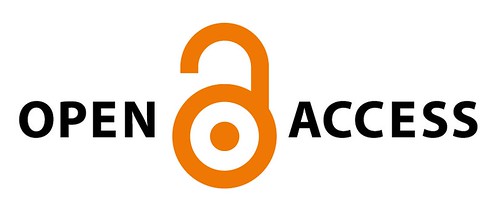Since 2014, BCIT Library has made BCIT Master Theses openly accessible to readers around the world via cIRcuit!
cIRcuit is BCIT’s open access, research repository. We have over 700 student articles, capstone projects, theses, photographs, faculty citations, and other BCIT research output available for anyone to read. No login is necessary.
Some of the most exciting works are the BCIT Theses, which are the result of our Master’s Degrees programs. We have collected 22 BCIT Master’s Theses in cIRcuit.
Take a look: http://circuit.bcit.ca/repository/
Master of Science in Ecological Restoration a joint program between British Columbia Institute of Technology (BCIT) and Simon Fraser University (SFU). June 2017 saw 18 students graduate from the first cohort from Canada’s first master’s program specializing in Ecological Restoration.
Master of Applied Science in Building Engineering/Building Science Program was launched in 2011. The program offers two Master’s degrees: A Master of Engineering (M. Eng.) in Building Science degree; and a Master of Applied Science (M. A.Sc.) in Building Engineering/Building Science.
How to add to BCIT’s research repository, cIRcuit https://circuit.bcit.ca/repository/help

Why Open Access?
- Broader audience. Researchers around the world can more easily find your work without restrictions.
- Return on our investment. Publicly funded research made available through open access, means publishers are not making a profit and putting up walls around research output, like scholarly articles and research data.
- Education is enriched with more free and direct access to the latest research findings.
What Is Open Access? Open Access is a growing international movement that uses the Internet to throw open the locked doors that once hid knowledge. Encouraging the unrestricted sharing of research results with everyone, the Open Access movement is gaining ever more momentum around the world as research funders and policy makers put their weight behind it.
Celebrate Open Access Week October 22- 28, 2018 http://www.openaccessweek.org/
International Open Access Week is a global, community-driven week of action to open up access to research.
On Wednesday, October 24th, 2018, the BCIT Main Campus Library will be hosting Open Access Week Wednesday.
Licensing & Copyright
Open Access does not mean you lose your rights as an author.
In cIRcuit, you retain copyright, but you give us the rights to ‘publish your work online’.
Most Open Access repositories use a Creative Commons License when publishing online, it’s a simple format to explain how your work can be used.
Creative Common Licenses Types:
![]() Attribution (by)
Attribution (by)
All CC licenses require that others who use your work in any way must give you credit the way you request, but not in a way that suggests you endorse them or their use. If they want to use your work without giving you credit or for endorsement purposes, they must get your permission first.
![]() ShareAlike (sa)
ShareAlike (sa)
You let others copy, distribute, display, perform, and modify your work, as long as they distribute any modified work on the same terms. If they want to distribute modified works under other terms, they must get your permission first.
![]() NonCommercial (nc)
NonCommercial (nc)
You let others copy, distribute, display, perform, and (unless you have chosen NoDerivatives) modify and use your work for any purpose other than commercially unless they get your permission first.
![]() NoDerivatives (nd)
NoDerivatives (nd)
You let others copy, distribute, display and perform only original copies of your work. If they want to modify your work, they must get your permission first.
https://creativecommons.org/share-your-work/licensing-types-examples/
Canadian Copyright Law
‘Generally, an original work is automatically protected by copyright the moment you create it.
By registering your copyright, you receive a certificate issued by the Canadian Intellectual Property Office that can be used in court as evidence that you own it.
Your copyright exists in Canada during your lifetime and for 50 years following your death. After that, the work is in the public domain, and anyone can use it.
This is true for most works, but there are exceptions.’
What Is Copyright? Intellectual Property Office. (2018, October 18). Retrieved from http://www.ic.gc.ca/eic/site/cipointernet-internetopic.nsf/eng/wr03719.html?Open&wt_src=cipo-cpyrght-main